
LIED UND POPULARE KULTUR-SONG AND POPULAR CULTURE
Scope & Guideline
Charting the Evolution of Popular Music Narratives
Introduction
Aims and Scopes
- Transcultural and Global Perspectives:
The journal emphasizes transcultural studies, examining how music transcends geographical and cultural boundaries, and how global influences shape local music practices. - Historical Contextualization:
It provides historical analyses of popular music, exploring how past events influence contemporary music trends and cultural practices. - Interdisciplinary Approaches:
The journal encourages interdisciplinary research, integrating perspectives from musicology, sociology, anthropology, and cultural studies to enrich the understanding of popular music. - Cultural Critique and Reflection:
It engages in critical discussions about the politics of music, including issues of representation, identity, and cultural appropriation within the realm of popular music. - Community and Identity Formation:
Research often focuses on how music contributes to community building and identity formation in various cultural contexts.
Trending and Emerging
- Postcolonial Music Studies:
There is a growing focus on postcolonial critiques of music, examining how colonial histories influence contemporary musical practices and identities. - Diversity and Inclusion in Music:
Recent articles increasingly address issues of diversity and inclusion within music, exploring how various communities navigate representation and cultural expression. - Digital and Technological Influences:
The impact of digital technology on music creation, distribution, and consumption is becoming a prominent theme, reflecting the current media landscape. - Health and Wellbeing through Music:
Emerging studies investigate the role of music in promoting health and wellbeing, emphasizing therapeutic applications and social cohesion. - Gender and Feminist Music Scholarship:
There is an increased interest in feminist perspectives within music scholarship, especially in relation to popular music and its cultural implications.
Declining or Waning
- Traditional Music Forms:
There is a noticeable decrease in the publication of studies focused on traditional music forms, suggesting a potential shift towards contemporary and hybrid musical practices. - Regionalism in Music Studies:
Themes centered on regional identity, although still present, seem to be less frequently explored compared to global and transcultural perspectives. - Historical Music Analysis:
The focus on historical music analysis, particularly pre-20th century music, appears to be waning, as contemporary issues and modern music practices gain more attention. - Formal Music Education Studies:
Research related to formal music education, particularly in traditional contexts, is less prevalent, indicating a possible shift towards informal learning and community-based music practices. - Ethnomusicological Studies:
While ethnomusicology remains significant, there seems to be a decline in purely ethnomusicological studies that do not intersect with contemporary or popular music phenomena.
Similar Journals

OR SPECTRUM
Transforming Ideas into Impactful Research in ManagementOR SPECTRUM, published by SPRINGER, is a premier journal in the fields of Business, Management, and Operations Research, with a distinguished reputation established since its inception in 1979. As of 2023, it holds an impressive Q1 ranking in Business, Management and Accounting (miscellaneous) and a Q2 ranking in Management Science and Operations Research. The journal, which is indexed under ISSN 0171-6468 and E-ISSN 1436-6304, boasts a significant impact factor within its scope, making it a pivotal resource for cutting-edge research and theoretical developments. With access options that favor traditional subscriptions, OR SPECTRUM offers a robust platform for the dissemination of innovative ideas and methodologies, vital for academics, professionals, and students alike. The journal's commitment to excellence ensures its critical role in enhancing the understanding and application of operational research techniques around the globe.
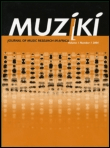
Muziki-Journal of Music Research in Africa
Celebrating the Richness of African Musical ResearchMuziki - Journal of Music Research in Africa is a leading publication dedicated to exploring the rich tapestry of music research across the African continent. Published by Routledge Journals, Taylor & Francis Ltd, this journal has been at the forefront of scholarly discourse since its inception in 2004, providing a platform for innovative and interdisciplinary approaches to the study of music. With an ISSN of 1812-5980 and E-ISSN of 1753-593X, it ensures wide accessibility to both print and digital audiences. As of 2023, it holds a prestigious Q3 ranking in the field of Music, reflecting its commitment to quality scholarship and the promotion of diverse musical narratives. Muziki is particularly invaluable for researchers, professionals, and students seeking to deepen their understanding of African musicology and its socio-cultural relevance. The journal publishes original research articles, reviews, and critical essays, highlighting contemporary developments and historical contexts in music research. With a Scopus rank of 59/180 in the Arts and Humanities Music category, it stands as a respected source for advancing knowledge and fostering dialogue within the global music community.
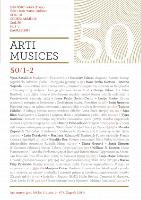
Arti Musices
Celebrating Diversity in Music Through Scholarly InsightArti Musices is a distinguished open-access journal published by the Croatian Musicological Society since 2007, dedicated to advancing the field of musicology and related arts and humanities disciplines. Operating from Zagreb, Croatia, this journal aims to provide a platform for scholarly communication, fostering international dialogue among researchers, musicologists, and practitioners. Although it has a current Scopus ranking in the bottom quartile within its category (Q4 in Music), it offers a unique perspective on the musicological landscape, particularly from a regional standpoint. Researchers seeking to contribute to or glean insights from this evolving field will find that Arti Musices serves an important role in disseminating innovative ideas and empirical research. The journal accepts submissions across a broad spectrum of music-related topics, inviting contributions that reflect the complexities and cultural contexts of music today.
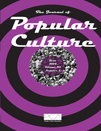
JOURNAL OF POPULAR CULTURE
Exploring the Pulse of Popular CultureThe Journal of Popular Culture, published by Wiley, stands as a pivotal platform for the exploration and analysis of cultural phenomena since its inception in 1967. With its ISSN 0022-3840 and E-ISSN 1540-5931, the journal deeply engages with themes encompassing literature, history, and the broader arts and humanities landscape, further categorized in 2023 into distinct quartiles reflected by its superior rankings: Q3 in Arts and Humanities (miscellaneous), Q2 in History, and Q1 in Literature and Literary Theory. This journal not only ranks competitively in Scopus—positioned at the 73rd percentile in Literature and Literary Theory and achieving a significant recognition in History—but also cultivates a rich dialogue aimed at researchers, educators, and students alike. Through its non-open access model, the journal maintains a robust collection of scholarly articles that contribute to the understanding of popular culture's impact on society, making it an essential resource for academics and practitioners committed to this dynamic field.

Journal of Israeli History
Unveiling the Complex Narratives of Israel's PastThe Journal of Israeli History, published by Routledge Journals, Taylor & Francis Ltd, is a distinguished platform dedicated to the exploration of the diverse and dynamic history of Israel. With an ISSN of 1353-1042 and an E-ISSN of 1744-0548, this journal has made significant contributions to the field since its inception, bridging cultural studies and political science. Recognized in 2023 with prestigious rankings such as Q1 in History and Q2 in Cultural Studies, the journal offers valuable insights and innovative scholarly work relevant to both historical interpretations and contemporary analyses. Although it does not offer Open Access, the journal is a critical resource for researchers, professionals, and students seeking to deepen their understanding of Israeli history, society, and politics. Situated in the UK at 2-4 Park Square, Milton Park, Abingdon OX14 4RN, Oxon, England, it continues to engage with historical narratives from 1994 through 2024, fostering a rich academic dialogue around the historical complexities of the region.
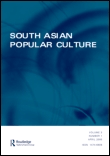
South Asian Popular Culture
Showcasing the Evolution of South Asian Cultural ExpressionSouth Asian Popular Culture, published by Routledge Journals, Taylor & Francis Ltd, stands as a premier scholarly publication dedicated to the dynamic and multifaceted cultural landscape of South Asia. With both ISSN 1474-6689 and E-ISSN 1474-6697, this journal has established its credibility in the field, evident in its Q2 ranking in Cultural Studies and Q1 in Visual Arts and Performing Arts as of 2023. The journal encompasses a broad range of themes, focusing on the interplay of popular culture, identity, media, and aesthetics in South Asian societies, and serves as a platform for innovative research that contributes to ongoing dialogues within the arts and humanities. Operating from the United Kingdom, it enjoys a respectable positioning in Scopus rankings—placing in the 87th percentile for Visual Arts and Performing Arts and the 73rd percentile in Cultural Studies—thus assuring researchers and academics of its significant impact. Although it is not offered under open access, South Asian Popular Culture continues to be an essential resource for scholars and practitioners keen on exploring the rich and evolving narratives that shape South Asian cultural expression.

SCANDINAVICA
Elevating Critical Discourse in Cultural Studies and Literary Theory.SCANDINAVICA, published by the University of East Anglia, is a pivotal peer-reviewed journal in the fields of Cultural Studies and Literature and Literary Theory. With an ISSN of 0036-5653, the journal offers a platform for scholars and researchers to disseminate innovative research and critical insights from 2002 through 2020 and will continue to do so until 2024. Although it is not currently an open-access journal, its commitment to extensive academic discourse is reflected in its rank, with a reputable Q4 in Cultural Studies and Q3 in Literature and Literary Theory within the 2023 category quartiles. With Scopus rankings placing it in the 2nd percentile for Literature and Literary Theory and an even more esteemed 1st percentile for Cultural Studies, SCANDINAVICA stands out as an influential resource for those engaged in the vibrant intersections of cultural narratives and literary analysis. This journal serves to elevate critical discussions and foster a deeper understanding of Scandinavian cultural and literary discourses, making it an essential read for academics, students, and anyone vested in these multidimensional fields.

Intersections-Gender and Sexuality in Asia and the Pacific
Connecting Cultures Through Scholarly ExplorationIntersections: Gender and Sexuality in Asia and the Pacific is a pioneering scholarly journal published by the Australian National University, focusing on critical discourse surrounding gender and sexuality within the diverse cultural contexts of Asia and the Pacific. With its ISSN of 1440-9151, the journal invites researchers, professionals, and students to explore the intersections of identity, culture, and societal norms that shape experiences in this vibrant region. While the journal currently maintains an open access status, its contributions are pivotal in shedding light on underrepresented voices and narratives. With a commendable ranking within Q4 in the categories of Cultural Studies, Gender Studies, and History for 2023, it serves as a crucial platform for academics seeking to engage with interdisciplinary perspectives. Over its years of publication, from 2018 to 2023, Intersections has solidified its importance in advancing knowledge and fostering dialogue crucial for understanding the complexities of gender and sexuality in contemporary society. It continues to challenge conventional boundaries and aims to provide meaningful insights that resonate across cultures and disciplines.
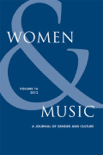
Women and Music-A Journal of Gender and Culture
Exploring the Harmonies of Gender and CultureWomen and Music: A Journal of Gender and Culture is a pioneering academic journal published by University of Nebraska Press, focusing on the intersection of gender and music. With a commitment to exploring issues pertinent to women and music in a range of cultural contexts, this journal provides a critical platform for scholars, musicians, and educators to share research that enriches our understanding of gender dynamics within the music industry and music's role in society. While currently not an open-access journal, it aims to make significant contributions to gender studies, cultural studies, and musicology, attracting a dedicated readership from various backgrounds. The journal is essential for those interested in feminist musicology and gender representation in the arts, fostering discourse that challenges traditional narratives and promotes inclusive scholarship. By bringing together diverse perspectives and innovative research, Women and Music continues to push boundaries and foster important conversations within both academic and artistic communities.
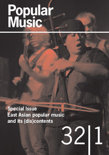
Popular Music
Exploring the Soundtrack of SocietyPopular Music, published by Cambridge University Press, is a leading academic journal that has been at the forefront of contemporary music studies since its inception in 1981. With its comprehensive scope encompassing a rich diversity of topics within the fields of Cultural Studies and Music, this journal holds a respectable Q2 ranking in both categories as of 2023, underscoring its significant impact on the scholarly discourse surrounding popular music. Researchers, professionals, and students alike will find invaluable insights within its pages as it explores the socio-cultural dynamics of music from various global perspectives. While it is not an open-access journal, the publication aims to foster critical dialogue and interdisciplinary scholarship. Based in the United Kingdom, Popular Music serves as a vital resource for those interested in the intersections of music, culture, and society, sustaining a vibrant academic community through rigorous peer-reviewed articles and reviews. Engage with the latest research and deepen your understanding of popular music's ever-evolving landscape.